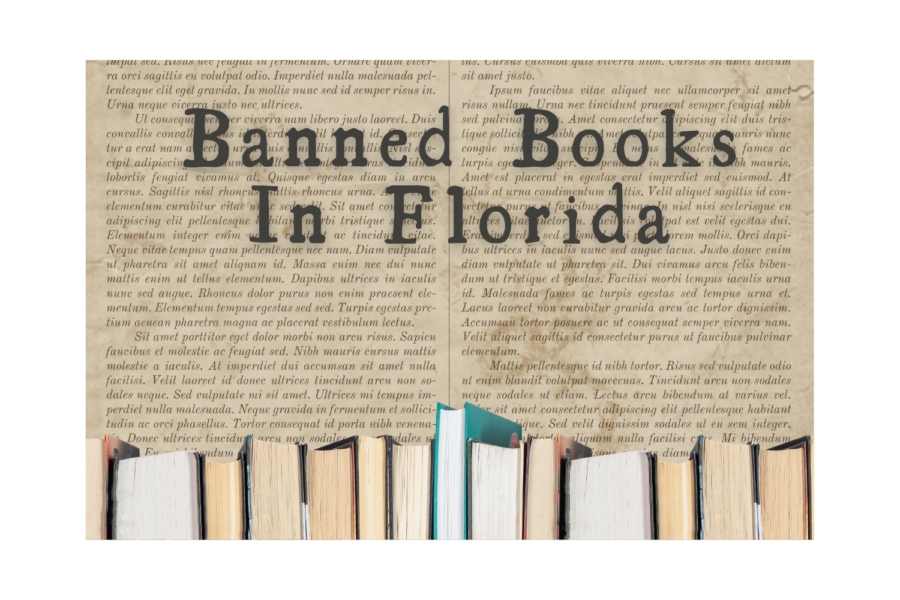Florida Book Ban
Book bans have been a hot topic of debate ever since they were brought up by Ron Desantis. But the reasons they apply for specific books being banned don’t make any sense.
Book bans in schools have been a pressing issue for a while now, however the topic of what is an appropriate book to have in a school setting has skyrocketed this year. No laws have been set in stone yet, however some counties have been taking Ron Desantis’s vague words by heart and mass banning books that do not fit any sort of criteria of being banned at all.
Martin County in Florida is so far the most notorious in taking the banning of books seriously, with the school board of the county having a meeting in early March and banning over 100 books from their library on the grounds that they all had a reason to and were “sexually explicit.” However, among the innumerable amount was Jodi Picoult’s “The Storyteller,” a story in which the granddaughter of a holocaust survivor meets a former SS officer from World War II. Toni Morrison’s “The Bluest Eye” and Laurie Anderson’s “Speak” show up as well; both are books that are mature in nature and do contain content that can be considered sexually explicit, but it is not in a way that is trying to shock or pleasure the viewer, the themes and content in the book give a better idea of the bigger pictures the books are trying to convey and are not just there for shock value.
There is fundamentally no reason why books should be banned unless they are making it a point to be purposefully obscene or hateful. Toni Morrison’s “The Bluest Eye,” for example, contains controversial sexual content, but it is used in a way to highlight the struggles of impoverished black folk in the mid-1900s. Readers need to learn about this content with no filter because it is an incredibly important part of history, no matter how shameful it may be. The same can be said about “The Storyteller.” People are going to have to understand these abhorrent periods in history in some fashion or another, and attempting to advert their eyes from it is basically useless.

